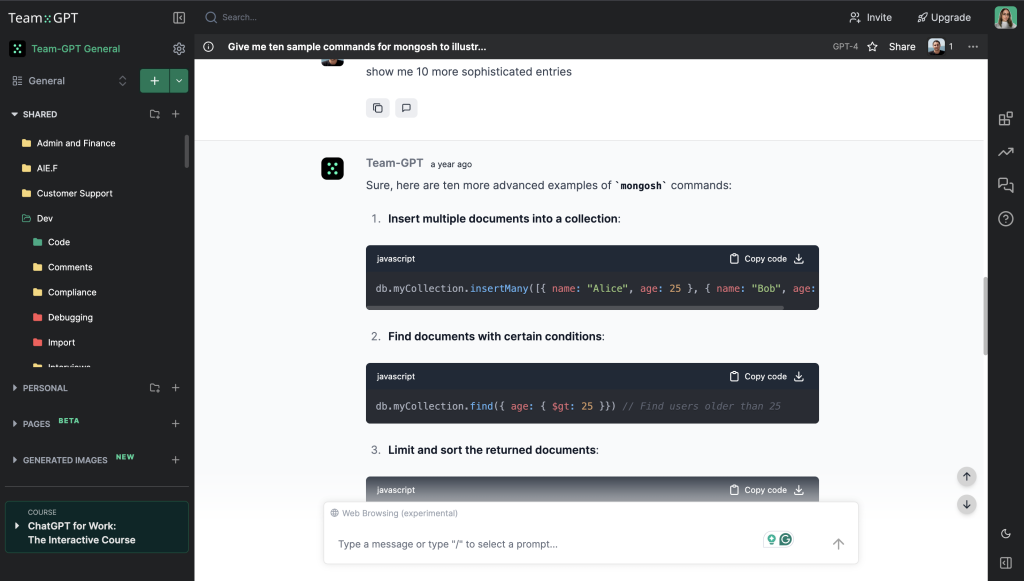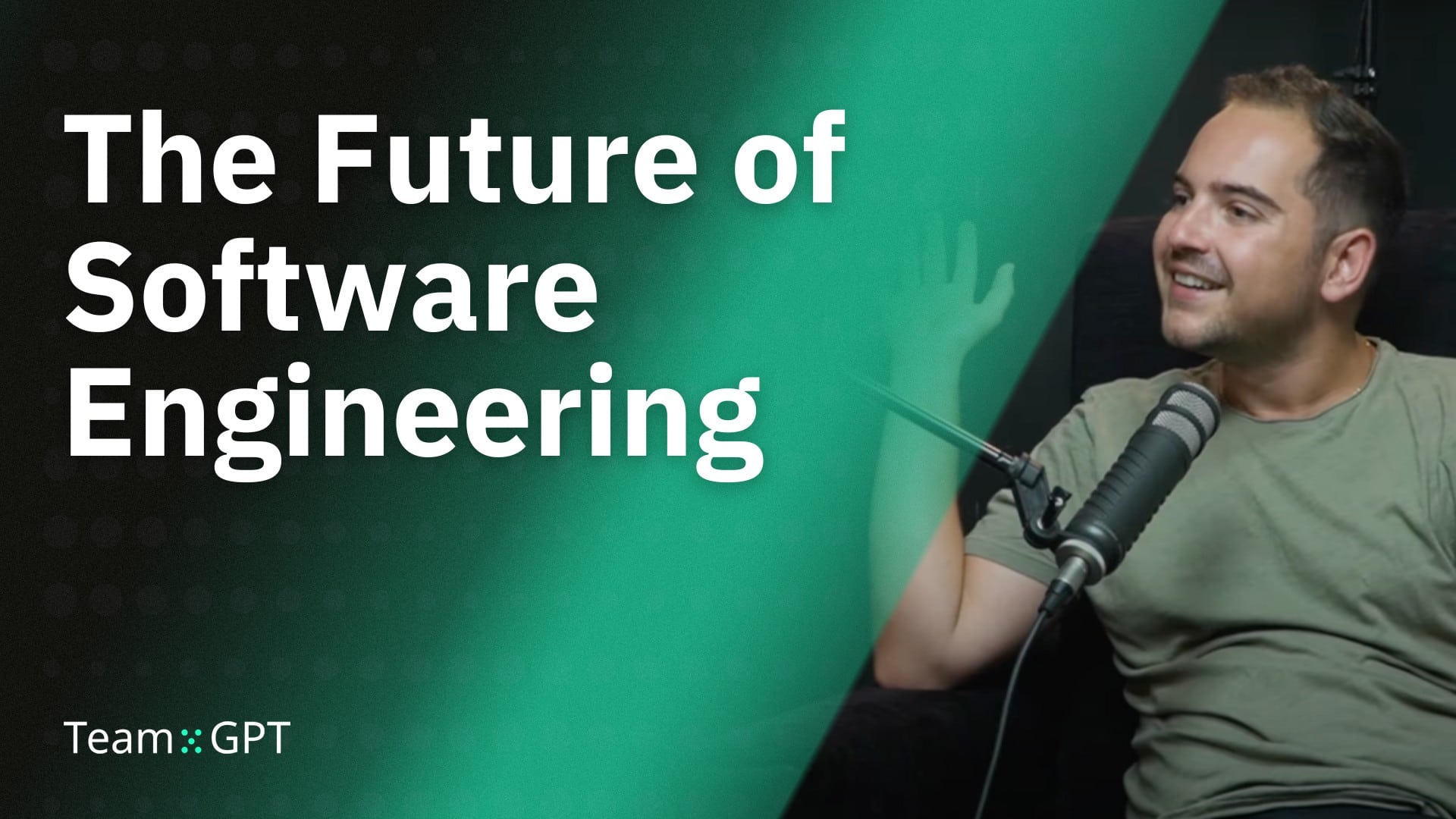The future of software engineering is being shaped by AI, particularly through advancements in technologies like ChatGPT. These advancements are democratizing coding, making it more accessible, and boosting productivity for developers at all skill levels.
What is the Future of Software Engineering?
Ten years ago, someone invited me to join their software project. At the time, I was still a university student and didn't know how to code. I expressed this concern, but they reassured me and said, "You don't have to know how to code. What matters is being a smart person who can make logical decisions and has a solid chain of thought. These are the best coders."
The Evolution of Software Development
The future of software engineering is marked by a significant shift towards AI-driven development and automated coding. Today, we've reached a point where knowing the basics and effectively using AI can help generate good code. While AI can't yet well handle complex tasks like building a web app or creating something as advanced as ChatGPT, it excels at repetitive tasks that make up 99% of typical coding work. Not surprisingly, coding is among the top use cases of ChatGPT, and by 2030, it's expected that a substantial portion of programming will be automated by AI. This transformation is predicting a new era in the future of coding.
Empowering Developers with AI
There is a new trend: individuals who understand code but struggle with writing it can use AI to bridge this gap. AI tools can now not only write code but can also assist in understanding complex code structures, thereby enhancing some developers’ ability to contribute meaningfully without deep technical expertise in coding.
Making Coding More Accessible
AI in software development is crucial in democratizing coding, turning it from a niche skill into a more accessible ability. AI tools provide a supportive stepping stone for those new to coding or from non-technical backgrounds to actively engage with software development and learn faster than ever before. This is particularly important as the future of software engineering seems to be inclusive, allowing individuals from various backgrounds to participate in software creation.

Automated Coding
AI is set to automate coding tasks that have been solved previously. This ensures faster development cycles and higher accuracy (or less human error), crucial in today's fast-paced tech environment.
The Strategic Role of Software Engineers
The role of software engineers will evolve towards more strategic activities such as system architecture, algorithm optimization, and creative problem-solving. This shift will emphasize the importance of conceptual understanding and strategic oversight over routine coding skills.
What are the Advantages of Generative AI in Software Development?
Generative AI models like ChatGPT bring many benefits to the table, like:
- Speed: Automating the generation of code significantly reduces development time.
- Accuracy: With the ability to learn from vast datasets, AI can improve the accuracy of the code generated (of course, some human revision is still needed).
- Faster Innovation: AI facilitates a creative approach to problem-solving in coding. By automating routine tasks, developers can allocate more time to innovate and experiment with new ideas.

What are the Top ChatGPT Use Cases for Developers?
ChatGPT serves as a versatile AI tool for developers with many applications in coding:
Writing Code
Prompt ChatGPTto generate code snippets for you. Give it your requirements, and it will quickly produce the boilerplate code, saving you time.
Debugging
Ask ChatGPT for help when facing a tough bug. Explain it as well as possible. ChaTGPT is so good at helping that Stack Overflow has seen a 50% decrease in traffic since ChatGPT came along.
Code refactoring
Request ChatGPT's recommendations for cleaning up your code. It can identify improvement areas and suggest alternative methods or structures.
API design
Need help designing APIs? ChatGPT can generate endpoint structures, suggest suitable HTTP methods, and assist in defining error responses.
Code Explanation
Not sure what a particular piece of code is doing? ChatGPT can break it down and explain it in a way that's easier to understand.
Free ChatGPT for Work Course
These use cases and many more, you can explore in Team-GPT’s FREE ChatGPT for Work course!
It features many ChatGPT use cases for developers as well as many prompts that will help you up your game.
The course is designed to develop everyone’s AI skills with a few videos and ~100 exercises. Most lessons are 2-3 minutes long, while all video content is ~1 hour. And it’s interactive: 90% of the time you will be hands-on, interacting with ChatGPT.

How to Write the Best ChatGPT Prompts for Developers?
Consider the following strategies for crafting prompts:
- Specificity: The clearer and more detailed your prompt, the more precise the AI’s response.
- Context: Providing context ensures that the AI generates code that is relevant to your needs.
- Feedback: Regularly refining prompts based on AI feedback improves the learning curve and maximizes output quality.
Check out this article which features amazing prompts for many of the ChatGPT use cases for coding.
The future of software engineering is increasingly aligned with advancements in AI, setting a transformative path for the industry. By integrating AI tools like ChatGPT into their workflows, developers can not only improve their coding skills but also contribute to more innovative and efficient software development processes.

